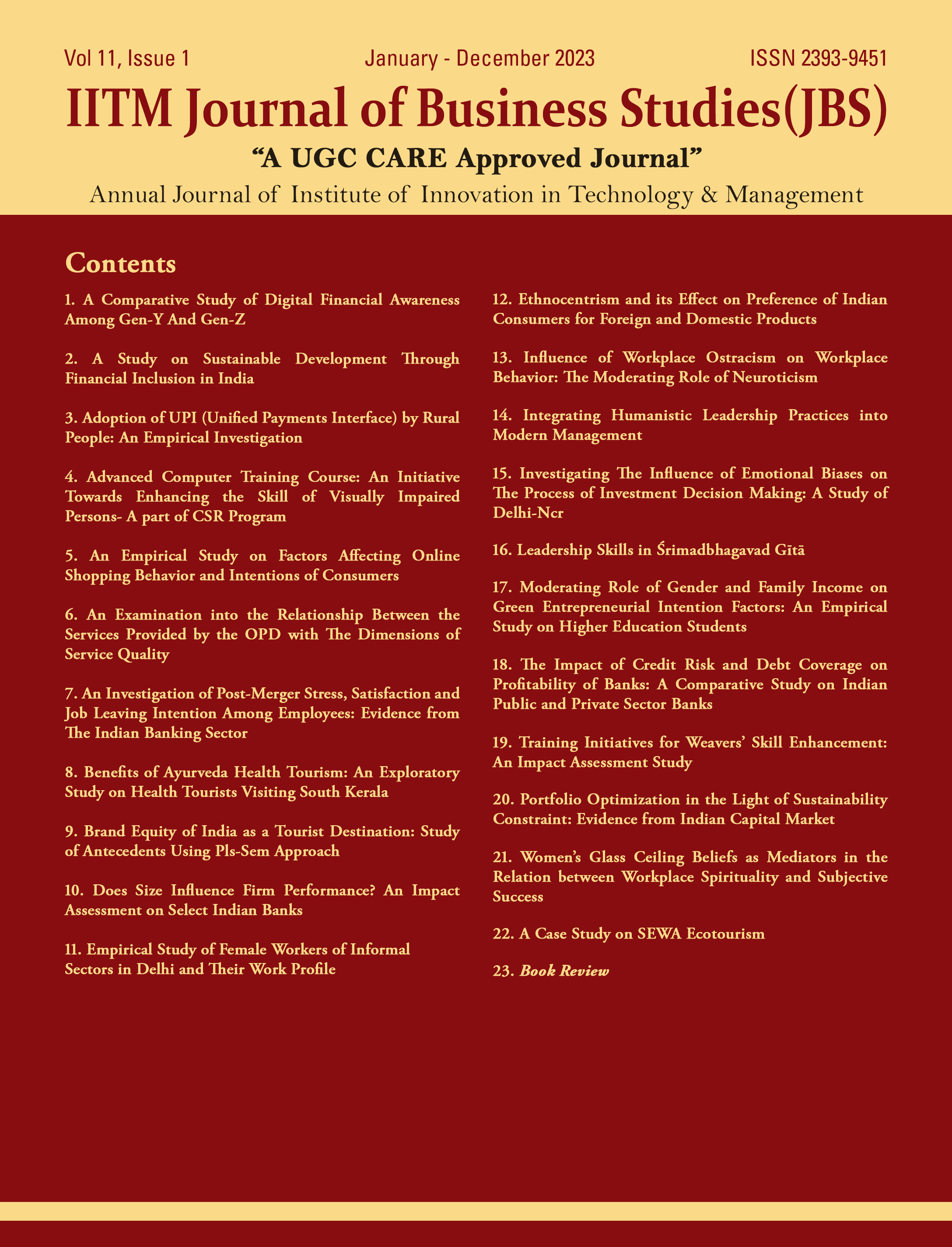Consequences of Salesforce Motivation
Keywords:
Salesforce motivation, Salespeople, Sales organizationsAbstract
Salesforce motivation has been found to have important consequences for salespeople as well as sales organization. This study analyzes the consequences of salesforce motivation based on the review of studies. The review of studies showed that motivation has an impact on salesforce behavioural and outcome performance, sales territory performance, job satisfaction, adaptive selling, salespeoples' effort, role conflict, role ambiguity, burnout, salesperson's effective listening behavior and managerial trust. Based on the findings, research implications are stated.
References
Bagozzi, R. P. (1980a). Performance and Satisfaction in an Industrial Sales Force: An Examination ofTheir Antecedents and Simultaneity. Journal of Marketing, 44, 2, 65-77
Bagozzi, R. P. (19806). The Nature and Causes of Self-Esteem, Performance, and Satisfaction in the Sales Force: A Structural Equation Approach. Journal of Business, 53, 3, Parr l, 315-331
Brown, S. P., and Peterson, R. A. (1994). The Effect of Effort on Sales Performance and Job Satisfaction. Journal of Marketing, 58, 2, 70-80
Churchill, Jr., G. A., Ford, N. M., Hartley, S. W, and Walkcr,Jr., O.C. (1985). The determinants of salesperson performance: A meta-analysis. Journal of Marketing Research, 22, 2, I 03-118
Cravens, D. W Woodruff, R. B., and camper, J.C. (1972). An Analytical Approach for Evaluating Sales Territory Performance. journal of Markering, 36, I, 31-37
Ingram, T. N., Lee, K. S., and Skinner, S. J. (1989). An Empirical Assessment of Salesperson Motivation, Commitment, and Job Outcomes. Journal of Personal Selling and Safes Management, 9, 3, 25-33 7. Low, G.S., Cravens, D. W, Grant,K., and Moncrief, W C. (2001). Antecedents and consequences of salesperson burnout. European Journal of Marketing, 35, 5/6, 587-611
Mallin, M. L., Asree, S., Koh, A. C., and Hu, M. W. (2010). Antecedents to managerial trust and sales conuol in Malaysian salesforce. International Business Review, 19, 292-305
Miao, C. F., and Evans, K. R. (2007). The Impact of Salesperson Mocivation on Role Perceptions and Job Performance - A Cognitive and Affective Perspective. Journal of Personal Selling and Sales lvlanagement, 27, 1, 89-101
Miao, C. F., and Evans, K. R. (20126). Effects of formal sales control systems: A combinatory perspective. International journal of Research in Marketing, 29, 181-191
Roman, S., Ruiz, S., and Munuera, J. L. (2005). The Influence of the Compensation Syscem and Personal Variables on a Salesperson's Effective Listening Behavior. Journal of Marketing Management, 21 (1-2), 205- 230
Roman S., and Iacobucci, D. (2010). Antecedents and consequences of adaptive selling confidence and behavior: a dyadic analysis of salespeople and their customers. Journal of the Academy of Marking Science, 38:363-382, DOI 10.1007/sll747-009-0166-9
Spiro, R. L., and Weitz, B. A. (1990). Adaptive Selling: Conceptualization, Measurement, and Nomological Validity. journal of Marketing Research, 27, 1 (Feb.), 61-69
Tyagi, P. K. (1985). Relative importance of key job dimensions and leadership behaviours in motivating salesperson work performance. Journal of Marketing, 49, 3, 76-86
Walker Jr., 0. C., Churchill Jr., G. A., and Ford, N. M. (1977). Motivation and Performance in Industrial Selling: Present Knowledge and Needed Research. Journal of Marketing Research, 14, 2, 156-168
Weitz, B. A., Sujan, H., and Sujan, M., (1986). Knowledge, motivation and adaptive behaviour: A framework for improving selling effectiveness. Journal of Marketing, 50, 4, 17 4-191

